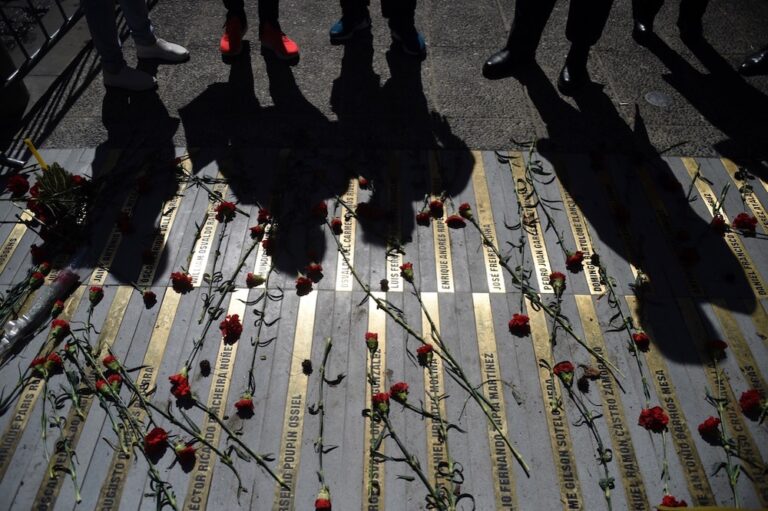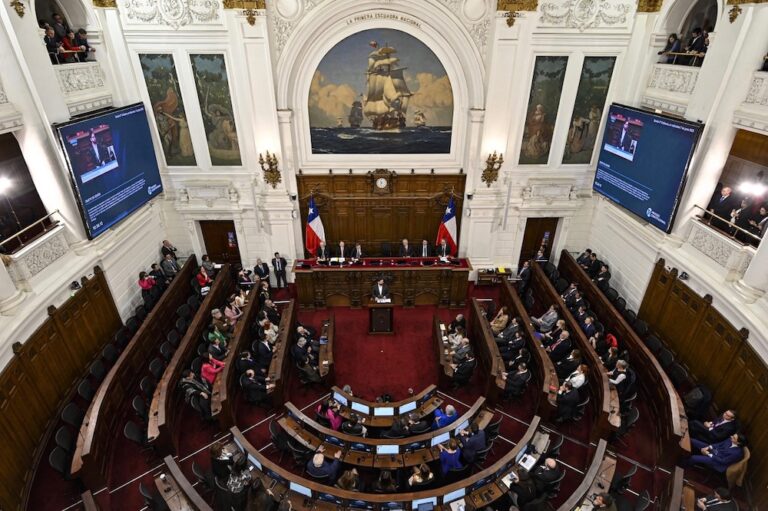In a letter to Ricardo Lagos shortly before he assumed the presidency, RSF expressed its “profound concern over repeated threats to press freedom due to the application of the State Security Law”. Since the Chilean parliament is preparing to adopt a new press law, RSF asked the future representative to “use his veto power if […]
In a letter to Ricardo Lagos shortly before he assumed the presidency, RSF expressed its “profound concern over repeated threats to press freedom due to the application of the State Security Law”. Since the Chilean parliament is preparing to adopt a new press law, RSF asked the
future representative to “use his veto power if the new text does not stipulate the abolition of the aforementioned law”. “Chile would honour itself with such a decision, which would permit it to respect its international commitments to press freedom” added Robert Ménard, RSF’s secretary-general, who also asked Lagos to “ensure that the new legislative text does not foresee imprisonment for press crimes”.
Adopted in 1958, the State Security Law establishes sentences of up to five years’ imprisonment for defamation, injuries or slander of the president, ministers of state, senators, deputies, and members of the supreme court, regardless of whether the journalist is working within his/her profession when the damages are committed. Since 1990, seventeen journalists have been detained or charged under this law, and three of the cases have occurred within the last twelve months.
On 15 February 2000, José Ale was sentenced by the Supreme Court to 541 days’ (18 months) imprisonment for “insults” against Servando Jordán, former president of the Supreme Court (see IFEX alerts of 24 and 8 March, and 22 February 2000). Ale was allowed to go free, but is required to report to prison authorities regularly in order to sign a register. In a 7 January 1998 article published in “La Tercera” newspaper, Ale commented on the circumstances under which the former magistrate left his position. While Jordán also filed a charge against Fernando Paulsen, director of “La Tercera”, the Chilean Supreme Court decided not to retain the charges against him.
Thus far five judges or courts have examined the case, always resolving not to proceed with the charges. On 28 July 1999, Judge Alejandro Solís justified absolving the journalist by noting the “incompatibility” of the State Security Law with freedom of expression. Ale does not have the option to appeal the Supreme Court’s decision, therefore RSF has called on the president of the
institution to “condemn” the sentencing, which restricts Ale’s movement.
A few months earlier, in September 1999, journalist Alejandra Matus was granted political asylum in the United States (see IFEX alerts of 5 May, 15 and 27 April 1999). She left Chile when a Court of Appeals judge began legal proceedings against her on 14 April, and ordered the confiscation of her work, “The Black Book of Chilean Justice”. In this book, Matus denounced the “corruption, nepotism and abuses of power” which, according to her, reigned in the judicial administration. The judicial proceedings against her were also initiated by Jordán, who asked that the State Security Law be applied. To this day, Matus is still living under the threat of imprisonment and her book is still banned.
In his report published in 1999, Santiago Canton, Special Rapporteur for Freedom of Expression of the Organisation of American States (OAS), condemned the “clear restrictions on freedom of expression” inherent in the text. In 1995, the Inter-American Commission on Human Rights stated that laws that “protect public officials’ honour” go against “the fundamental principles of a democratic system”. In his most recent report, the United Nations’ Special Rapporteur for Freedom of Opinion and Expression “insists in asking governments to take all appropriate measures to ensure that press crimes are no longer punished with prison sentences”.


